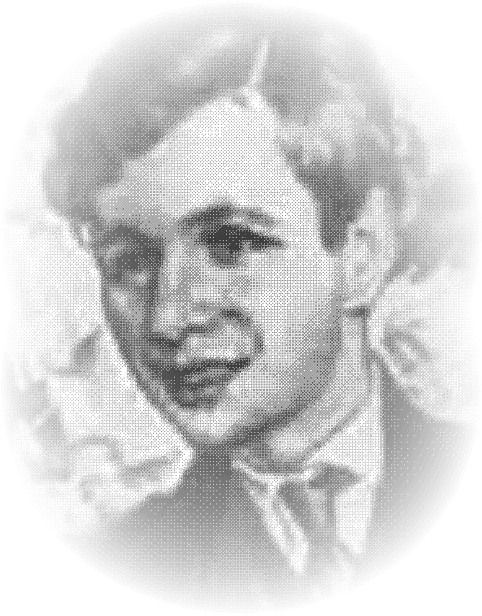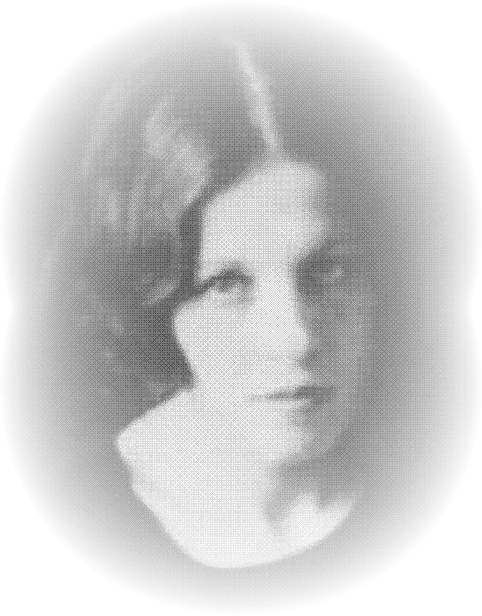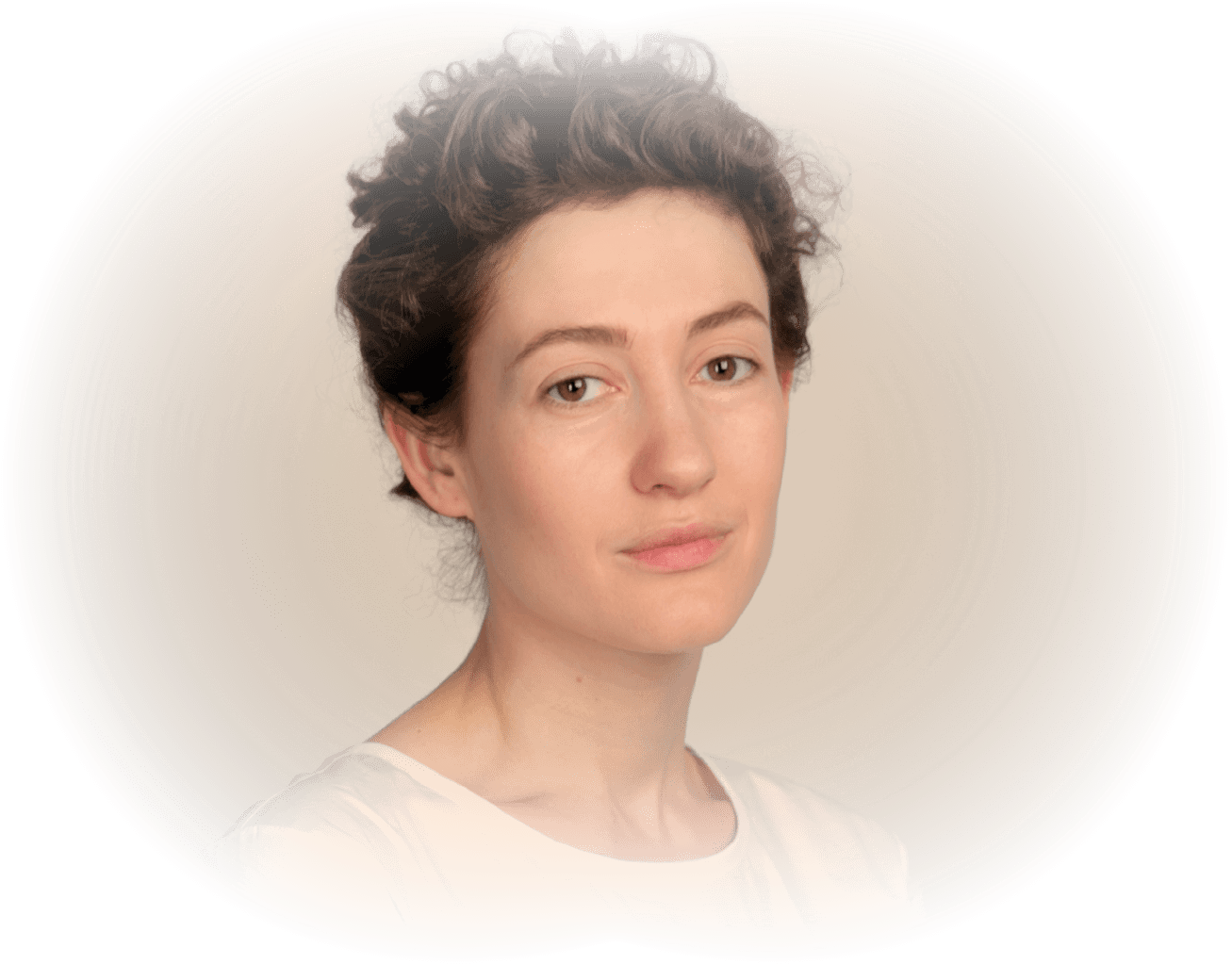
In 1919, the Gorlin family fled the Russian Civil War and settled in Berlin. Here Mikhail Gorlin grew up, studied — became a philologist (fascinated by German romanticism, he wrote his dissertation on the influence of Ernst Hoffmann on Nikolai Gogol) and a poet. He published his first collection of poems in German. Such mastery in a foreign language is very rare. Mikhail Gorlin created the Berlin Poets’ Club (one of its members was, well, Vladimir Nabokov). Another member was his future wife, Raisa Bloch. In 1933, the National Socialists came to power in Germany. Both Gorlin and Bloch are Jews, so they move to free Paris, where they get married and have a daughter, Dora. It’s a happy time: Paris is the cultural capital of the Russian exile, and the couple became prominent figures in the literary scene.
Misha Gorlin is very small, chubby, with small features and curly, rather blond hair. His eyes are nice — gray, intelligent, with long eyelashes: he was chubby like a girl... He was 11 years younger and a head shorter than her. (family friend Eugenia Kannakh)
No one could have imagined that France would lay down its arms so easily and that the Nazis would occupy Paris as early as 1940. The Gorlins refused to believe that the Germans, with whom they had lived side by side for ten years, now suddenly became barbarians — which is why they never left Paris. On May 14, 1941, Mikhail was arrested and sent to a transit camp in the town of Pithiviers. It was nearly a blessing: the police kept a half-eye on the prisoners and even allowed them to go for walks in the town. Many took advantage of this and escaped the camp on bicycles. But Gorlin could not ride a bicycle and spent his outdoor time working in the local library. One year passed, and in July 1942, all the prisoners were transferred to Auschwitz. Meanwhile, the academic community was fighting for Gorlin’s freedom: he was granted a visa to the United States, he was given a professorship, a bank account was opened... Mikhail Gorlin was murdered in the gas chamber in 1944. The year before, Raisa Bloch had been arrested and extradited to the occupation authorities while trying to cross the Swiss border — she also died in the camp. Shortly before her mother’s arrest, six-year-old Dora died of illness.
Dora Mikhailovna was born, like almost everything else in my life, at the very last moment, five minutes to midnight. With that said, she is a wonderful gal. (from Mikhail Gorlin’s letter)

Raisa Bloch took her first literary steps back in St. Petersburg, where she studied at Mikhail Lozinsky’s translation courses. She remained grateful to Lozinsky throughout her life, calling herself one of the Lozinites. Similarly, the young poets of Nikolai Gumilev’s workshop were called Gumilites. Raisa Bloch fled Russia shortly after hearing about Gumilev’s execution on August 26, 1921.
By the time she emigrated, Bloch had already made a name for herself as an aspiring poet and medieval historian. The first helped her to enter the literary scene quickly. The second allowed her to disguise her departure as a business trip and fit into the academic community. But where to channel her homesickness?
Tomorrow is Russian Easter... I imagine “my city” before the holiday, with crowds of people carrying paskhas and kuliches in napkins. I imagine familiar avenues, the staircases of churches... When will I see all this? Will I see it at all. (from Raisa Bloch’s letter)
Bloch met young poet Mikhail Gorlin at the Berlin Poets’ Club. Afraid of their mutual attraction, they did not yet know that their fate was now shared. The years of relatively prosperous Berlin life wore thin by the early 1930s:
They don’t take too kindly to me on the national question... Their talk about the shape of my skull and the purity of my race only makes me feel disgusted and sad, not even hateful. I hope everything will work out somehow. (from Raisa Bloch’s letter)
Together they moved to Paris, where no one was interested in racial theory yet. Here they got married and had a daughter, Dora. Bloch worked at the French National Library and published two poetry collections:
Raisa Bloch belongs to that class of poets (the highest class, to my mind...) for whom art and life are one and the same: she writes about what she lives by; she lives by what she writes... (poet and critic Georgy Adamovich)
Despite the ominous rumors, the declaration of war took Raisa Bloch and Mikhail Gorlin by surprise. He was arrested on May 14, 1941. She was arrested a year later after she tried to cross the Swiss border with forged documents. Before that, six-year-old Dora died.
Raisa Bloch managed to throw a note out of the train, which miraculously reached her relatives. She died in the gas chamber immediately upon her arrival at the camp.
Dear friends,
Thank you for the warm things! I received everything the day before I left. I don’t know where they’re taking me. Probably not that far. To Metz or the outskirts first. I feel fine. I hope to see you all... I won’t be freezing now. Thank you for everything. There haven’t been any difficulties so far. Thinking of everyone with fondness and hope to come back to you. Goodbye!
P.S. In the 1930s, Vladislav Khodasevich wrote a playful fable called The Flea and the Little Dove.
Bloch sounds like the Russian blocha, which means the flea, and Gorlin sounds like gorlitsa, which means the little dove.
On the navel of the payer proudly planted,
The flea said to the little dove, “Look!
I can leap perfectly from here
To the bosom.”
But the little dove answered, “That’s your business.”
And soared into the clouds.
Thus, Genius surpasses the talents of mortal man,
But does not speak of it herself.
Miriam Sekhon|Miriam-Sekhon
Vasilii Zorkii|Vasilii Zorkii

Over the blue moonlit night
The wisps of clouds,
In delusion or in vision
Scraps of dreams and words,
All that grew and beat,
In tune and out of tune with fate,
With trusting power
Brought everything to you.
And all my pages,
Obedient to every leaf,
They fly, fly like birds,
To the quiet, gentle whistle.
They rush like birds,
Through the city’s dusk
So that they may take shelter
Beneath a tender hand.
***
O stillness, stillness,
You’re always with us,
You are always busy
Rattling in the cities.
In life’s endless brawl
You’re the strongest of all!
Ice shards lying in a heap,
O great depths of the deep,
O lake of dark waters,
My love knows no borders.
